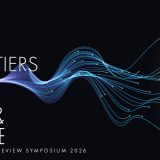
Chapman University Fowler School of Law Professor Lawrence Rosenthal Publishes “The Statement and Account Clause as a National Security Freedom of Information Act”
January 20, 2016
Chapman University Dale E. Fowler School of Law Professor Lawrence Rosenthal’s article “
The Statement and Account Clause as a National Security Freedom of Information Act
” was published in Volume 47 of the
Loyola University of Chicago Law Journal
.
From the abstract:
The amount of the aggregate annual appropriations for the civilian and military intelligence programs is the only aspect of intelligence spending that is publicly disclosed. As a consequence, a great deal of information about how public funds are spent remains secret, potentially insulating from ordinary processes of political accountability not only waste, inefficiency, and abuse, but also what the public may regard as unwarranted intrusions on its privacy. This article offers a constitutional vehicle for greater transparency – the Constitution’s Statement and Account Clause, which provides that “a regular Statement and Account of the Receipts and Expenditures of all public Money shall be published from time to time.” The scholarly literature contains no comprehensive treatment of the clause; Part I fills that gap, and contends that at least presumptively, information that is material to the public’s assessment of the manner in which the intelligence community spends public funds must be annually disclosed. Part II turns to the question of judicial enforcement, widely thought unavailable since the Supreme Court’s 1974 holding in United States v. Richardson that a lawsuit asserting taxpayer standing to obtain information about the CIA’s budget was nonjusticiable. Part II demonstrates that jurisprudential developments since Richardson limit its scope and suggest that it does not bar lawsuits brought by voters to enforce the Statement and Account Clause, and poses no obstacle to suits seeking disclosure of information about intelligence spending under the Freedom of Information Act (“FOIA”), even if they also contend that the FOIA’s exemption of information about intelligence matters from the statutory duty of disclosure is unconstitutional as applied to information that must be disclosed under the Statement and Account Clause.
Read the full article
.
After graduating from Harvard Law School, where he won the Fay Diploma and was an editor of the
Harvard Law Review
,
Professor Lawrence Rosenthal
clerked for Judge Prentice Marshall of the United States District Court for the Northern District of Illinois and Justice John Paul Stevens of the United States Supreme Court. Professor Rosenthal entered the practice of law as an Assistant United States Attorney for the Northern District of Illinois, specializing in organized crime and public corruption prosecutions. He subsequently joined the City of Chicago’s Department of Law, where he was Deputy Corporation Counsel for Counseling, Appeals and Legal Policy. In that capacity, he argued three cases in the United States Supreme Court, and supervised a large volume of complex litigation as well as legislative policy matters. Professor Rosenthal joined the Fowler School of Law faculty in the fall of 2005. Other scholarly writings include “
The Limits of Second Amendment Originalism and the Constitutional Case for Gun Control
,” in the
Washington University Law Review
(2015); “
The Scope of Regulatory Authority under the Second Amendment
,” in
Reducing Gun Violence in America: Informing Policy With Evidence and Analysis
(Daniel W. Webster & Jon S. Vernick eds., 2013) (with Adam Winkler); “
Originalism in Practice
,” in the
Indiana Law Journal
(2012).

